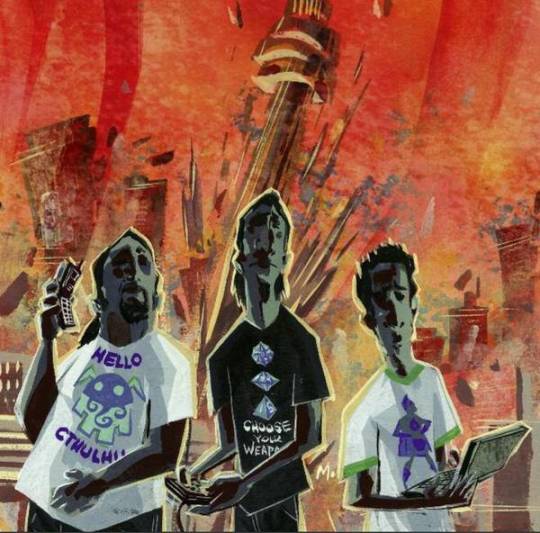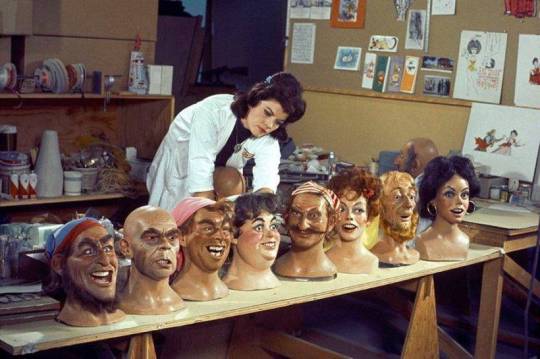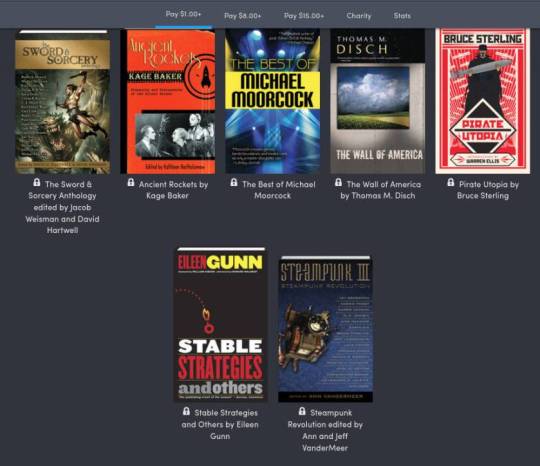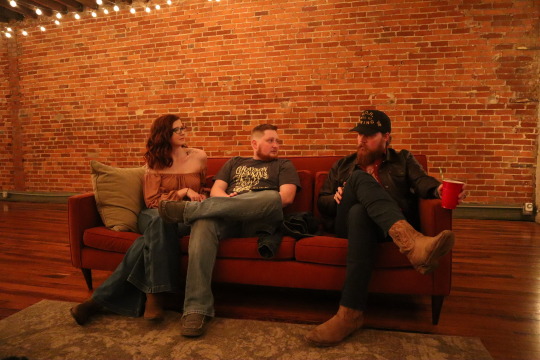#should i post whats written in the corps records book be honest
Text
zen's azure spider lily journal entry from nov. 3, 1915.
some info from @askbluespiderlily and the corps records book ^_^

first page:
[drawings of blue spider lilies in shallow or deep water labelled shallow? or deep?]
'only drawn bloomed so I know how to draw spider lilies. ❀'
'they actually look like horsetails.'
[drawing of horsetail. no colour.]
'they still look nice in the ponds unbloomed, though.'
second page:
'I want to go with shallow water because I'd be able to hide them from moonlight with a blanket.'
'I don't think they'd be able to photosynthesize in deep water anyway. the only way I'd be able to hide them is with the lotuses, and I don't think our leader would be very happy with me moving them.'
'I wonder what they mean. they don't seem to show up in my hanakotoba book.'
#˳༄꠶ 🪷 zen + kny#˳༄꠶ 🌐 kny stuff#˳༄꠶ 🫧 writing#should i post whats written in the corps records book be honest#i like writing fake journal entries ^__^#NOOO.... i did NOT just take the lilies from my painting of zen .... cold sweat emoji#zen calls it azure spider lily cuz there's barely any records of it and they're called different things every time
4 notes
·
View notes
Text


Garrett, Leah. X Troop: The Secret Jewish Commandos of World War II. Boston: Houghton Mifflin Harcourt, 2021; London: Vintage Publishing, 2021.
(The American cover is on the left, the British on the right.)
Every so often, gifs from something called X Company cross my dashboard. When I came across Leah Garrett’s book X Troop, my first thought was that it must treat the same subject, but it seems that that can’t be the case: Garrett maintains that none of this story has ever been told before, because most of the documentation remained classified until very recently. (She claims to have single-handedly declassified many sealed British military records.) X Troop is about No. 10 (Inter-Allied) Commando, 3 Troop, commonly referred to as X Troop, comprising 87 German, Austrian, and (in a few cases) Hungarian refugees, all but five of them Jewish (at least under Nazi racial laws — I’ll get to that). It is indeed an extraordinary story, and occasionally an infuriating one. Garrett has done a tremendous public service in relating this tale, but the book itself has some puzzling — no, let's be honest, irritating — aspects.
The men who would make up X Troop left their native countries in their mid to late ’teens during the late 1930s, most of them without their parents as passengers on the Kindertransport. They occupied themselves in various ways until the middle of 1940 when, apparently without exception, they were interned on the Isle of Man, in Canada, or in Australia, to which more than 2,500 of them were transported on the H.M.T. Dunera, a dangerously over-crowded liner on which they endured conditions so horrific that the officer in charge — Major William Patrick Scott, a gleeful sadist and anti-Semite — ended up being court-martialed.
It is heartening to be able to report that British public opinion appears to have turned strongly against wholesale internment by mid-1941, but it wasn’t until that December that the internees were released from confinement. Those who had been transported overseas were offered immediate permission to return to the U.K. — if they volunteered for the Pioneer Corps, and I’m grateful to Garrett for providing the first detailed explanation that I’ve seen of what that meant. It wasn’t a good situation: they did menial labor and were bored out of their minds.
In the summer of 1942, they were finally offered an opportunity to join in the fight against the Nazis. This appears to be an instance in which the “great man” theory of history is perfectly valid, Lord Mountbatten being the great man in question. Garrett explains:
Mountbatten made a bold suggestion [to Winston Churchill]: they should create a new special unit of commandos, different from anything used before. Rather than coming from the ranks of the army or the navy, No. 10 (Inter-Allied) Commando would be composed of soldiers made up of displaced nationals such as Poles, Norwegians, and Frenchmen. Each of the units . . . would be used for different missions depending on their native languages. They would be unified by the shared desire to drive the Nazis out of their home countries. These commandos, highly trained and highly motivated, would lead the way when the time came for the Allies’ invasion of Europe.
And that’s exactly what happened. There were French, Dutch, Belgian, Norwegian, Polish, and Yugoslavian troops within No. 10 (Inter-Allied) Commando. There was also a troop known as the “British” troop, made up of Germanophones. That was X Troop (a nickname Churchill gave them). “X Troop would be Britain’s secret shock troop in the war against Germany,” Garrett relates:
They would kill and capture Nazis on the battlefield. But that would not be all. They would also immediately interrogate captured Germans, be it in the heat of the battle or right afterward. The men’s fluency in German would enable them to get essential intelligence that would guide the next moment’s choices rather than having to wait to interview prisoners until they were back at headquarters. ... They would have to be in peak form both physically and mentally. And because they were nearly all Jewish refugees from the Third Reich, they also would need to be diligently protected.
The situation was particularly dire because most were stateless — stripped of their citizenship in Germany or Austria, but refused naturalization by the Home Office. As one officer later recalled, “If any of them were captured in battle and their true identity had been revealed, their fate would have been almost impossible to contemplate.” (Those who chose to remain in the U.K. after the war faced an uphill battle in gaining British citizenship, as Garrett relates. She tells us nothing, incidentally, about Jewish personnel in the other No. 10 (Inter-Allied) Commando Troops.)
The first step was to have them adopt pseudonyms. When they arrived in Aberdovey (now Aberdyfi), Wales, for training they were each given 30 minutes to come up with a nom de guerre. They also had to concoct false backgrounds to explain why they spoke English with foreign accents. One man told the couple with whom he was billeted “that his accent was somewhat peculiar because his father had traveled a lot on business,” an unlikely story that they apparently accepted without question.
X Troop personnel were involved in the Dieppe raid — which may have been a mistake, as the troop was just past its infancy and several of the men were killed — and the Sicily landings and their aftermath, but of course all of that was really just a warm-up for the invasion of Normandy and, beyond that, Germany. More than half of the book is devoted to this. Assigned to various units, nearly all of the commandos landed at Sword Beach on June 6th, 1944, and proceeded into Central Europe, achieving victory after victory. Garrett places great emphasis on anger as their motivator: anger at the disruption of their lives and at their uncertainly over the fate of their parents and other relatives.
Leah Garrett is American; she is also Jewish. Like the overwhelming majority of my fellow Jews in this country, she is incapable of acknowledging the possibility of viable Jewish life outside of the U.S. or Israel. Her main piece of evidence for this view, which she hammers home repeatedly, is the fact that all but three of the surviving X-Troopers (22 were killed in action) chose to continue using their noms-de-guerre after the war — and, as she is at pains to point out, all of those who resumed their original names ended up emigrating to the United States! (The book’s excellent index helps the reader keep track of who was whom.) It’s true that names hold an important place in Jewish culture, but coming from someone using Garrett as a surname, her attitude comes across as either oblivious or chutzpadik, I’m not quite sure which. She also seems not to know that, historically at least, Jewish immigrants to Britain have changed their names with an assiduousness that makes the same phenomenon in the U.S. look like a mere blip.
Garrett also informs us, in the written equivalent of hushed tones, that some of the men who settled in the U.K. after the war married gentile women and brought up their children as at least nominal members of various Christian bodies. I share her discomfort with this, to be sure, but in order to maintain her shocked, shocked, stance she has to ignore something that she has in fact explained at some length in the book’s early chapters: a significant percentage of the future X-Troopers had only one or two Jewish grand-parents apiece, were brought up as Lutherans or Roman Catholics, and had absolutely no idea that they had any Jewish forebears until Nazi racial laws forced the issue into view. While I’ve known quite a few converts to Judaism whose initial impetus was the discovery of Jewish ancestry, it’s a bit much to expect that everyone will react that way. On the other hand, it’s dispiriting to learn that the inscription on the monument to X Troop that was raised in Aberdyfi in 1999 does not include the words Jews or Jewish.
Garrett is Professor of Jewish Studies and Director of the Jewish Studies Center at Hunter College, part of the City University of New York (CUNY), a post she has held since 2018; she previously taught at the University of Denver and Monash University. As a former CUNY faculty member myself, I’m in a position to tell you that (a) even as a full professor, she won’t have been hired with tenure, and (b) this book probably won’t help her to achieve it. It’s a great read on an important topic and represents prodigious research, but as a work of scholarship it has several marks against it. It doesn’t come from an academic publisher. It has only a partial scholarly apparatus — end notes, but no bibliography, or even a list of the many abbreviations used in the notes. Those notes aren’t always as useful as one would like, I might add: after relating that some of the men interned in Australia chose to remain there permanently, Garrett announces that they “would forever change the landscape of Australia. They would be known as the Dunera boys and would become leaders in the arts, sciences, culinary arts, and industry during the twentieth century,” but fails to give us any clue as to where we can go to find out more.
She also adopts an informal writing style that alternates between the faintly slangy (“All the evidence I’ve found points to ... ”) and the unnecessarily dramatic: two key chapters are written entirely in the present tense, a strategy that would normally be after my own heart, but which feels contrived in this context. It also seems not to be the case that none of this has ever been written about previously, as Garrett asserts. (Last but not least, Garrett recently resigned from CUNY’s faculty union, which may end up affecting her status there, as tenure recommendations are made by union members.)
Mixed feelings, then; but the book is worth reading, and I can recommend it.
#world war ii#u.k. armed forces#refugees#historical accounts#a long post for sunday#longer than i had intended in fact#with some very long paragraphs#book review#recommended with reservations
8 notes
·
View notes
Text
Pluralistic: 14 Mar 2020 (Free audio of Masque of the Red Death and When Sysadmins Ruled the Earth, Ada Palmer on censorship, Women of Imagineering, Glitch unionizes, Tachyon/EFF Humble Bundle, Canada Reads postponed, data-caps and liquid bans paused, Star Wars firepits)

Today's links
Masque of the Red Death: Macmillan Audio gave me permission to share the audiobook of my end-of-the-world novella.
When Sysadmins Ruled the Earth: A new podcast audiobook of my 2005 end-of-the-world story.
Ada Palmer on historical and modern censorship: Part of EFF's Speaking Freely project.
Glitch workers unionize: First-ever tech union formed without management opposition.
Women of Imagineering: A 384-page illustrated chronicle of the role women play in Disney theme-park design.
Tachyon celebrates 30 years of sff publishing with a Humble Bundle: DRM-free and benefits EFF.
Honest Government Ads, Covid-19 edition: Political satire is really hard, but The Juice makes it look easy.
TSA lifts liquid bans, telcos lift data caps: Almost as though there was no reason for them in the first place.
CBC postpones Canada Reads debates: But you can read a ton of the nominated books online for free.
Star Wars firepits: 750lbs of flaming backyard steel.
This day in history: 2005, 2015, 2019
Colophon: Recent publications, current writing projects, upcoming appearances, current reading

Masque of the Red Death (permalink)
Edgar Allan Poe wrote "The Masque of the Red Death" in 1842. It's about a plutocrat who throws a masked ball in his walled abbey during a plague with the intention of cheating death.
https://www.poemuseum.org/the-masque-of-the-red-death
My novella "The Masque of the Red Death" is a tribute to Poe; it's from my book Radicalized. It's the story of a plute who brings his pals to his luxury bunker during civlizational collapse in the expectation of emerging once others have rebuilt.
https://us.macmillan.com/books/9781250242334
Naturally, they assume that when they do emerge, once their social inferiors have rebooted civilization, that their incredible finance-brains, their assault rifles, and their USBs full of BtC will allow them to command a harem and live a perpetual Frazetta-painting future.
And naturally – to anyone who's read Poe – it doesn't work out for them. They discover that humanity has a shared microbial destiny and that you can't shoot germs. That every catastrophe must be answered with solidarity, not selfishness, if it is to be survived.
Like my story When Sysadmins Ruled the Earth, the Masque of the Red Death has been on a lot of people's minds lately, especially since this Guardian story of plutes fleeing to their luxury bunkers was published. Hundreds of you have sent me this.
https://www.theguardian.com/world/2020/mar/11/disease-dodging-worried-wealthy-jet-off-to-disaster-bunkers
I got the message. Yesterday, I asked my agent to see if Macmillan Audio would let me publish the audiobook of my Masque of the Red Death for free. They said yes, and asked me to remind you that the audiobook of Radicalized (which includes Masque) is available for your delectation.
I hope you'll check out the whole book. Radicalized was named one of the @WSJ's best books of 2019, and it's a finalist for Canada Reads, the national book prize. It's currently on every Canadian national bestseller list.
There's one hitch, though: Audible won't sell it to you. They don't sell ANY of my work, because I don't allow DRM on it, because I believe that you should not have to lock my audiobooks to Amazon's platform in order to enjoy them.
Instead, you can buy the audio from sellers like libro.fm, Downpour.com, and Google Play. Or you can get it direct from me. No DRM, no license agreement. Just "you bought it, you own it."
https://craphound.com/shop/
And here's the free Macmillan Audio edition of Masque of the Red Death, read with spine-chilling menace by the incredible Stefan Rudnicki, with a special intro from me, freshly mastered by John Taylor Williams. I hope it gives you some comfort.
https://craphound.com/podcast/2020/03/13/the-masque-of-the-red-death/
(Here's the direct MP3, too)
https://archive.org/download/Cory_Doctorow_Podcast_332/Cory_Doctorow_Podcast_332_-_The_Masque_of_the_Red_Death.mp3

Ada Palmer on historical and modern censorship (permalink)
My EFF colleague Jillian C York's latest project is Speaking Freely, a series of interviews with people about free expression and the internet, including what Neil Gaiman memorably called "icky speech."
http://journal.neilgaiman.com/2008/12/why-defend-freedom-of-icky-speech.html
The latest interview subject is the incomparable Ada Palmer: historian, sf writer, musician, and co-host of last year's U Chicago seminar series on "systems of information control during information revolutions," which I co-taught with her. Ada's interview synthesizes her historian's distance from the subject ("yes, this is my subject, and these people are terrible, and it's kind of fun in that way") with her perspective as a writer and advocate for free speech.
"One of the victims of censorship is the future capacity to tell histories of the period when censorship happened….. It renders that historical record unreliable… makes it easier for people to make claims you can't refute using historical sources… It's similar to how we see people invalidating things now—like 'that climate study wasn't really valid because it got funding from a leftist political group"—they're invalidating the material by claiming that there has to be insincerity its development.
"Pretty much every censoring operation post-printing press recognizes that it isn't possible to track down and destroy every copy of a thing…An Inquisition book burning was the ceremonial burning of one copy. The Inquisition kept examples of all of the books they banned."
Fascinating perspecting on whether nongovernmental action can really be called "censorship."
"The Inquisition wasn't the state – it was a private org like to Doctors Without Borders or Unicef, run by private orgs like the Dominicans and it often competed with the state." As she points out, everything the Inquisition did would be fine alongside the First Amendment, because it was entirely private action.
Next, Palmer talks about market concentration and how it abets this kind of private censorship. This is something I've written a lot about, see for example:
https://locusmag.com/2020/01/cory-doctorow-inaction-is-a-form-of-action/
"If you have a plural set of voices, then you're always going to have some spaces where things can be said, just like you have a plurality of printers printing books, and some will only print orthodox things and some will only print radical ones."
And while the internet could afford many venues for speech, in practice a concentrated internet makes is plausible to accomplish the censor's never-realized dream: "You can make a program that can hunt down every instance of a particular phrase and erase it."
Tiny architectural choices make big differences here ("Architecture is politics" -Mitch Kapor). Amazon can update your Kindle books without your permission, Kobo can't. Amazon could delete every instance of a book on Kindles, but Kobo would need cooperation from its customers.
Palmer is just the latest subject of Jillian's series. You can read many other amazing interviews here:
https://www.eff.org/speaking-freely

When Sysadmins Ruled the Earth (permalink)
Over the past two weeks, hundreds of people have written to me to draw comparisons between the pandemic emergency and my 2005 story "When Sysamins Ruled the Earth" – an apocalyptic tale of network administrators who survive a civilizational collapse.
https://craphound.com/overclocked/Cory_Doctorow_-Overclocked-_When_Sysadmins_Ruled_the_Earth.html
I started writing this story in the teacher's quarters at the Clarion Workshop, which was then hosted at MSU. It was July 6, 2005. I know the date because the next day was 7/7, when bombs went off across London, blowing up the tube train my wife normally rode to work. The attacks also took out the bus I normally rode to my office. My wife was late to work because I was in Michigan, so she slept in. It probably saved her life. I couldn't work on this story for a long time after.
Eventually, I finished it and sold it to Eric Flint for Baen's Universe magazine. It's been widely reprinted and adapted, including as a comic:
https://archive.org/details/CoryDoctorowsFuturisticTalesOfTheHereAndNow/mode/2up
I read this for my podcast 15 years ago, too, but the quality is terrible. The more I thought about it, the more I thought I should do a new reading. So I did, and John Taylor Williams mastered it overnight and now it's live.
https://craphound.com/podcast/2020/03/13/when-sysadmins-ruled-the-earth-2/
There's a soliloquy in this where the protagonist reads a part of John Perry Barlow's Declaration of Independence of Cyberspace. Rather than read it myself for the podcast, I ganked some of Barlow's own 2015 reading, which is fucking magnificent.
https://vimeo.com/111576518
Anyway, I hope you enjoy this. I've spent a lot of imaginary time inhabiting various apocalypses, driven (I think) by my grandmother's horrific stories of being inducted into the civil defense corps during the Siege of Leningrad, which began when she was 12.
Anyway, I hope you enjoy this. I've spent a lot of imaginary time inhabiting various apocalypses, driven (I think) by my grandmother's horrific stories of being inducted into the civil defense corps during the Siege of Leningrad, which began when she was 12.
You can subscribe to the podcast here:
http://feeds.feedburner.com/doctorow_podcast
And here's the MP3, which is hosted by the @internetarchive (they'll host your stuff for free, too!).
https://archive.org/download/Cory_Doctorow_Podcast_331/Cory_Doctorow_Podcast_331_-_When_Sysadmins_Ruled_the_Earth.mp3

Glitch workers unionize (permalink)
The staff of Glitch have formed a union. It seems to be the first-ever white-collar tech-workers' union to have formed without any objections from management (bravo, Anil Dash!).
https://cwa-union.org/news/releases/tech-workers-app-developer-glitch-vote-form-union-and-join-cwa-organizing-initiative
The workers organized under the Communications Workers of America, which has been organizing tech shops through their Campaign to Organize Digital Employees.
https://www.code-cwa.org/?gclid=EAIaIQobChMIovDRsc-S6AIVCuDICh0rFQCMEAAYASAAEgJb1PD_BwE
"We appreciate that unlike so many employers, the Glitch management team decided to respect the rights of its workforce to choose union representation without fear or coercion."

Women of Imagineering (permalink)
Next October, Disney will publish "Women of Imagineering: 12 Careers, 12 Theme Parks, Countless Stories," a 384-page history of a dozen pioneering woman Imagineers.
https://thedisneyblog.com/2020/03/13/new-book-highlights-stories-from-the-women-of-walt-disney-imagineering/
Featured are Elisabete Erlandson, Julie Svendsen, Maggie Elliott, Peggy Fariss, Paula Dinkel, Karen Connolly Armitage, Katie Olson, Becky Bishop, Tori Atencio, Lynne Macer Rhodes, Kathy Rogers, and Pam Rank.
When I worked at Imagineering, the smartest, most talented, most impressive staff I knew were women (like Sara Thacher!). It's amazing to see the women of the organization get some long-overdue recognition.

Tachyon celebrates 30 years of sff publishing with a Humble Bundle (permalink)
For 30 years, @TachyonPub has been publishing outstanding science fiction, including a wide range of stuff that's too weird or marginal for the Big 5 publishers, like collections of essays and collections.
https://tachyonpublications.com/
Now, they've teamed up with Humble Bundle to celebrate their 30th with a huge pay-what-you-like bundle that benefits EFF. There are so many great books in this bundle!
https://www.humblebundle.com/books/celebrating-25-years-scifi-fantasy-from-tachyon-books
Like Bruce Sterling's Pirate Utopia, Eileen Gunn's Stable Strategies, and books by Michael Moorcock, Thomas Disch, Jo Walton, Jane Yolen, Nick Mamatas, Kameron Hurley, Lauren Beukes, Lavie Tidhar and so many more!
I curated the very first Humble Ebook Bundle and I've followed all the ones since. This one is fucking amazeballs. Run, don't walk.

Honest Government Ads, Covid-19 edition (permalink)
Good political satire is hard, but @thejuicemedia's "Honest Government Ads" are consistently brilliant.
https://www.youtube.com/channel/UCKRw8GAAtm27q4R3Q0kst_g
The latest is, of course, Covi9-19 themed. It is funny, trenchant, and puts the blame exactly where it belongs.
https://www.youtube.com/watch?v=Hks6Nq7g6P4
If you like it, you can support their Patreon.
https://www.patreon.com/TheJuiceMedia

TSA lifts liquid bans, telcos lift data caps (permalink)
Your ISP is likely to lift its data-caps in the next day or two. @ATT and @comcast already did.
https://www.vice.com/en_us/article/v74qzb/atandt-suspends-broadband-usage-caps-during-coronavirus-crisis
And TSA has decided that 12 ounces of any liquid labelled "hand sanitizer" is safe for aviation, irrespective of what's in the bottle.
https://www.theverge.com/2020/3/13/21179120/tsa-hand-sanitizer-liquid-size-airport-screening-coronavirus-covid-19
What do these two facts have in common? Obviously, it's that the official narrative for things that impose enormous financial costs on Americans, and dramatically lower their quality of lives, were based on lies. These lies have been obvious from the start. The liquid ban, for example, is based on a plot that never worked (making binary explosives in airport bathroom sinks from liquids) and seems unlikely to ever have worked, according to organic chemists.
Keeping your "piranha bath" near 0' C for a protracted period in the bathroom toilet is some varsity-level terrorism, and the penalty for failure is that you maim or blind yourself with acid spatter.
https://www.schneier.com/blog/archives/2006/08/on_the_implausi.html
And even if you stipulate that the risk is real, it's been obvious for 14 years that multiple 3oz bottles of Bad Liquid could be recombined beyond the checkpoint to do whatever it is liquids do at 3.0001oz.The liquid ban isn't just an inconvenience. It's not even just a burden on travelers who've collectively spent billions to re-purchase drinks and toiletries. It's a huge health burden to people with disabilities who rely on constant access to liquids.
https://www.youtube.com/watch?v=0m12mLXgO1A
And as we knew all along, the liquid ban was a nonsense, an authoritarian response to a cack-handed, improbable terror plot. It embodies the "security syllogism":
Something must be done. There, I've done something.
Think of all those checkpoints where all confiscated liquids were dumped into a giant barrel and mingled together: if liquids posed an existential threat to planes, they'd dispose of them like they were C4, not filtered water. No one believed in the liquid threat, ever. TSA can relax the restrictions and allow 12oz of anything labeled as hand-san through the checkpoints. There was no reason to confiscate liquids in the first place. But don't expect them to admit this. The implicit message of the change is "Pandemics make liquids safe."
Now onto data-caps. Like the liquid ban, data-caps have imposed a tremendous cost on Americans. In addition to the hundreds of millions in monopoly rents extracted from the nation by telcos through overage charges, these caps also shut many out of the digital world. They represent a regressive tax on information, one that falls worst upon the most underserved in the nation: people in poor and rural places, for whom online access is a gateway to civic and political life, family connection, employment and education.
We were told that we had to tolerate these caps because of the "tragedy of the commons," a fraudulent idea from economics that says that shared resources are destroyed through selfish overuse, based on no data or evidence.
https://thebaffler.com/latest/first-as-tragedy-then-as-fascism-amend
(By contrast, actual commons are a super-efficient way of managing resources)
https://www.onthecommons.org/magazine/elinor-ostroms-8-principles-managing-commmons
Telcos insisted that if they didn't throttle and gouge us, their networks would become unusable – but really, what they meant is that if they didn't throttle and gouge us, the windfall to their shareholders would decline.
What's more likely: that pandemics make network management tools so efficient that data-caps become obsolete, or that they were a shuck and a ripoff from day one, enabled by a hyper-concentrated industry of monopolists with cozy relationships with corrupt regulators?
So yeah, maybe this is the moment that kills Security Theater and data-caps.
https://techcrunch.com/2020/03/12/coronavirus-could-force-isps-to-abandon-data-caps-forever/
(Image: Rhys Gibson)

CBC postpones Canada Reads debates (permalink)
The folks at the @CBC have postponed next week's televised Canada Reads debates, so we're going to have to wait a while to find out who wins the national book prize.
https://www.cbc.ca/books/canada-reads-2020-postponed-1.5497678
Obviously, this is a bummer, though equally obviously, it's a relatively small consequence of this ghastly circumstance.
And on the bright side, the CBC have just released a ton of excerpts from the nominees:
https://www.cbc.ca/books/canadareads/read-excerpts-from-the-canada-reads-2020-books-1.5496637
If you're looking for some Canada Reads lit for this moment, my novella "Masque of the Red Death" appears in my collection Radicalized, one of the finalists. I put up the story as a free podast last night (thanks to Macmillan Audio for permission).
https://craphound.com/podcast/2020/03/13/the-masque-of-the-red-death/

Star Wars firepits (permalink)
West Coast Firepits went viral when they produced a Death Star firepit, though of course, I lusted after their Tiki Firepit.

https://www.westcoastfirepits.com/shop/tiki-firepit-69825
But now they're really leaning into the Star Wars themed pits, with an Interceptor pit ($2500):

https://www.westcoastfirepits.com/shop/interceptor
Or, if you prefer a post-apocalyptic version, there's a Crashed Interceptor pit, also $2500.

https://www.westcoastfirepits.com/shop/crashed-interceptor
If those prices seem high, consider that they're hand-made onshore, and contain 750lbs of 1/4" and 1/8" steel.

This day in history (permalink)
#15yrsago How DRM will harm the developing world https://web.archive.org/web/20050317005030/https://www.eff.org/IP/DRM/itu_drm.php
#5yrsago Anti-vaxxer ordered to pay EUR100K to winner of "measles aren't real" bet https://calvinayre.com/2015/03/13/business/biologist-ordered-to-pay-e100k-after-losing-wager-that-a-virus-causes-measles/
#1yrago A massive victory for fair use in the longrunning Dr Seuss vs Star Trek parody lawsuit https://www.techdirt.com/articles/20190313/09554041791/big-fair-use-win-mashups-places-youll-boldly-go-deemed-to-be-fair-use.shtml
#1yrago A detailed analysis of American ER bills reveals rampant, impossible-to-avoid price-gouging https://www.vox.com/health-care/2018/12/18/18134825/emergency-room-bills-health-care-costs-america
#1yrago Ketamine works great for depression and other conditions, and costs $10/dose; the new FDA-approved "ketamine" performs badly in trials and costs a fortune https://slatestarcodex.com/2019/03/11/ketamine-now-by-prescription/
#1yrago Facebook and Big Tech are monopsonies, even when they're not monopolies https://www.wired.com/story/facebook-not-monopoly-but-should-broken-up/

Colophon (permalink)
Today's top sources: EFF Deeplinks (https://www.eff.org/deeplinks/), Waxy (https://waxy.org/), Slashdot https://slashdot.org).
Currently writing: I've just finished rewrites on a short story, "The Canadian Miracle," for MIT Tech Review. It's a story set in the world of my next novel, "The Lost Cause," a post-GND novel about truth and reconciliation. I've also just completed "Baby Twitter," a piece of design fiction also set in The Lost Cause's prehistory, for a British think-tank. I'm getting geared up to start work on the novel next.
Currently reading: Just started Lauren Beukes's forthcoming Afterland: it's Y the Last Man plus plus, and two chapters in, it's amazeballs. Last month, I finished Andrea Bernstein's "American Oligarchs"; it's a magnificent history of the Kushner and Trump families, showing how they cheated, stole and lied their way into power. I'm getting really into Anna Weiner's memoir about tech, "Uncanny Valley." I just loaded Matt Stoller's "Goliath" onto my underwater MP3 player and I'm listening to it as I swim laps.
Latest podcast: When Sysadmins Ruled the Earth https://craphound.com/podcast/2020/03/13/when-sysadmins-ruled-the-earth-2/
Upcoming books: "Poesy the Monster Slayer" (Jul 2020), a picture book about monsters, bedtime, gender, and kicking ass. Pre-order here: https://us.macmillan.com/books/9781626723627?utm_source=socialmedia&utm_medium=socialpost&utm_term=na-poesycorypreorder&utm_content=na-preorder-buynow&utm_campaign=9781626723627
(we're having a launch for it in Burbank on July 11 at Dark Delicacies and you can get me AND Poesy to sign it and Dark Del will ship it to the monster kids in your life in time for the release date).
"Attack Surface": The third Little Brother book, Oct 20, 2020. https://us.macmillan.com/books/9781250757531
"Little Brother/Homeland": A reissue omnibus edition with a new introduction by Edward Snowden: https://us.macmillan.com/books/9781250774583
27 notes
·
View notes
Text
An attempt to correct some.... misconceptions
In light of recent events, most notably, the Josh Burner vs Lily Orchard situation, people supporting either side have had their differing opinions. These range from claiming Lily is guilty of the crimes Josh has accused her of, therefore, she should be given a civil lawsuit, to Burner having no basis to sue. However, many have also demonstrated some misconception of the law. This is regarding American law, specifically, as nobody knows whether the supposed trial will happen in Canada or the US.
I’d like to start by saying I have no personal feelings or connections with Josh or Lily. I do enjoy content from both parties. Some have accused me of “white knighting” for Lily on a YouTube comment, but in reality, when I see a situation like this, I have to do my homework and make sure the facts aren’t twisted.
Regarding my thoughts about those two, Lily’s definitely an arrogant and pompous asshole, but she’s definitely not the spawn of Satan (She’s definitely not the worst person I’ve met, trust me), while Josh’s biggest mistake is his ineptitude in handling serious matters. Josh seems like a nice guy who’s dealing with certain problems in real life, but I’m not sure, I don’t know him personally. People have claimed Lily wrote a piece of child pornography, abused many people, or that she has “ulterior motives” for housing abuse victims in her server. That is a discussion for later, so this post addresses the allegations Josh has made on that Cease and Desist letter only. I’m not doing this cause I’m a “friend” of Lily or Josh, but if people are going to make claims, I’d like them to have the proper research and backing for it, rather than citing emotions, and believing any insult online is “slander.” It’s great to have an opinion on this matter, but it means more to have an informed opinion. I made sure to do my homework on the law, and conversed with a former Columbia University Law student regarding this topic.
Succinctly, Libel is written defamation of a private figure, while slander is oral defamation of a private figure. In order for statements to be defamatory, they need to be/demonstrate/result in:
1. Factually false statements.
2. Reckless disregard of the truth.
3. Provable damages to the figure. (Mainly, financially)
Josh will inevitably have a difficult time proving harassment or defamation to himself, because he is a public figure. Since Josh is a prominent member of the Brony analysis and YouTube community, he is a public figure on the internet. He regularly posts reviews, skits, commentaries, etc. All of this inherently subjects him, or anyone who uploads similar types of content to criticism (as long as it’s legal). By putting himself out there on YouTube, he has made himself a public figure within that sphere.
Break it down! http://gph.is/Z0CcZN
“Twisting words, and speaking lies about my conversations with Patchwork Heart”
I am not sure what to say for this one, since the call failed to record properly and there is no audio coming from Josh’s end. This one is honestly up in the air. Since the evidence of the call has been damaged, it’s really difficult to prove whether or not Lily has lied or twisted words about it. We can only go on the “he said, she said” basis, which the court will not accept.
“Deliberately and maliciously placing calls reasonably expected to be private in a public sphere for the intent of defamation.”
Both Burner’s and Orchard’s territories (Texas, United States and Nova Scotia, Canada, respectively) have the “one party consent law.” This basically means that people can record their own conversations with other party, since the recorder is taking part of the conversation him/her/self. Either one recording the call is fair game. I’m not sure why Josh included “deliberately.” However, malice is almost irrelevant to Lily’s action of uploading the conversation. Malice regards libel or slander, while the uploaded conversation was just.... a discussion about what to do with Brony DnD. The video just had the conversation as it happened, and nothing that would damage Josh's reputation. If Josh was worried about defamation from the video, that would imply he did or said something he's not proud of that he doesn't want the audience to know, but a lot of what he said is just up to interpretation. Her uploading the video was meant for the audience to listen to what actually happened, and then letting them decide what to think of it (Whether or not Josh is a “pedo enabler” or a “liar.” But this isn’t the main topic). Defamation applies to recklessly false statements, but portraying the situation as it happened (uploading the actual conversation) is the complete opposite of defamation.
“Using your fanbase and friends to send repeated and unrelenting harassment and false-flag my videos or videos I worked in, especially the Brony D&D videos as shown below.”
Harassment is really difficult to prove for a public figure like Josh. I agree, it’s really scummy of Lily to send her fans and friends on a dislike spree of the Brony DND videos. However, since Josh is a public figure, visible to anyone who types in youtube.com, this one is really difficult to prove as harassment. Plus, he can shut off the ratings bar if the dislikes bother him a lot. Regarding the false-flag problem, it shouldn’t be an issue if the flagging has failed. The decision to remove a flagged video is ultimately made by YouTube, and not the people who flag it. Since the false-flagging has failed, I doubt that the court will tackle this. The false flagging was just petty on the fans’ part.
Josh is trying to prove harassment, but on YouTube, he is subject to any opinion made based on the facts. Anyone can disagree on opinions. It’s also fair game to make an interpretation about someone based on his actions. Although people may disagree, it’s still legal, as long as it’s not blatantly false.
Moving on.
“Repeating and relentless use of ad-hominem attacks against me in public settings.”
Ad hominem is a logical fallacy where one’s argument is loaded with personal insults. Josh also linked the reader to a post where Lily compares Josh to Captain America, when he mentions “Hail Hydra.”

As offensive as it may be, it’s not violating any rules and to suggest a comparison to a comic book character being a felony is ridiculous. I doubt this will go through.
“Stealing my ideas simply to spite me.”
While I do agree copying ideas proves someone is unoriginal, Josh and Lily didn’t copy each ideas word for word. The original creator (Jello Apocalypse) of the “Review in 10 words or less” concept made his regarding Disney movies. The two did copy the concept, but since they added their own wrinkles to it (Making it MLP-based), none of them can be guilty of plagiarism. While it is very petty and childish of her to one-up Josh, it’s still legal. Wanting to one-up someone on the internet is the equivalent of wanting more “Gold stars” than others as an elementary school student. I don’t think there are any laws saying “you aren’t allowed to one-up another person, since it’s out of spite.” I doubt this part goes through.
Now let’s go to where Josh claims Lily has made defamatory statements.
“I bullied Patchwork Heart into relenting about Brony D&D.”
As mentioned somewhere above, this call lacked anything coming from Josh’s end, so this claim is honestly up for grabs. Lily made this claim based upon what Patchwork Heart themselves said on a tumblr post (I can’t find it). Since the call regarding their conversation failed to record properly, Lily’s in reasonable territory to claim Josh did so, since there is nothing to prove that Josh DIDN’T bully Patch (I’m not saying he did. It would just be difficult to prove either side). All Lily could work with was Patch’s tumblr post, since they were the only ones with Josh in that call. Lily formed an opinion based on the limited knowledge she had to work with. Since it’s impossible to prove whether Josh did bully Patch or not, I don’t think this will hold up in court. The only way Lily could be guilty of defamation would be if the call between Josh and Patch was somehow corrected to play Josh’s audio, but there is no record of anything Josh may have said to Patch.
“I said ‘wildly racist’ things when you were working for me.”
Whether Josh had said these racist things, nobody except for Lily and Josh themselves know. This sounds like a personal problem they had with each other that could be corrected if they decided to compromise and discuss this. Unfortunately both are more concerned about a power struggle more than anything, making this an unrealistic solution. I’m not sure what to say about this. Moving on.
“I am a fake Marine.”
Lily had never actually claimed that. In her “Guard Break” video, here is what she said regarding Josh’s status as a Marine.
“Mr. Burner wasn’t actually in the military. He was in the Marine Corps’ band, the ceremonial ‘I’m helping’ of most military branches. And to presume some kind of genuine authority out of that is to claim that the children who participate in the royal Navy Seal Cadets have any genuine military experience.”
What Lily did in this statement was make a somewhat arguable opinion regarding a fact. The fact of the matter is that Josh was in the Marine Corps’ band. Lily’s opinion is that since playing in the band and actual combat are completely different, he shouldn’t try to act as if he has “military authority.” While this is offensive to many people (I can’t blame anyone for thinking that), it’s on legal territory since she isn’t calling Josh a fake marine. She acknowledges Josh was in the Marine’s band, and uses an (pretty bad, but still legal) analogy to describe what she thinks of it. Saying someone is a fake marine is different from what Lily said. Her claim is equivalent to saying Josh is a sorry excuse of a marine. Offensive? Yes. Illegal? No.
“I am a fake Christian.”
To be honest, as a Catholic, I and many others have no idea what Christianity is about. It’s generally common knowledge that Josh is a Christian and takes pride in that. It’s also known that he has conservative beliefs. What Lily essentially did was call him a hypocrite, since both have principles that inherently conflict. Others may disagree about Josh being a hypocrite. Calling someone a hypocrite for their beliefs is definitely offensive, but doing so is merely an opinion made based on the facts. I doubt attorneys will handle this aspect of the lawsuit, should it happen.
All of these claims made on Josh’s C&D Letter won’t realistically pass through the court or lawyers. Lily’s statements about Josh amount to opinions formed based on actions or facts about Josh. Josh, being a public figure like Lily or many other YouTubers, isn’t legally protected from such actions. Trying to file a harassment lawsuit as a public figure is extremely difficult to get through, since lawyers won’t take a case that’s as gray as this one. Furthermore, Josh’s subscriber and patron count have increased and will continue to do so. It’ll be difficult to prove damages if both increase, since they inevitably make more money for him. If the sub count or patron count had dropped, then he can realistically prove damages, but since the opposite happened, it’s almost impossible. Calling someone an enabler and a pedophile are different since pedophilia is clear cut, while enabling someone can be interpreted as such through many different actions, making it unclear.
HOWEVER
This does not mean I condone Lily’s actions. Nevertheless, she is not legally obligated to stop being an asshole to people. Just as she has her rights to criticize and insult others, she’s also fair game to receiving it as well. Nothing is stopping anyone from criticizing her or vice versa, JUST AS LONG as it isn’t blatantly false. If it’s an opinion formed based on the facts, it’s fair game. Still, there is one action mentioned on the C&D that puts her into dangerous territory...
“Threatening physical harm / to kill me / saying I should die.”
Her claiming she will put a gun to Josh’s head puts her on thin ice legally. Of course, she can possibly defend herself, saying it was a hyperbole. However, she really does need to back off the violent remarks. This is really the only claim I can find on the letter that a lawyer would actually consider. Anything regarding harm or death puts the person on a fine line between claiming it was a hyperbole and actually making realistic threats.
OVERALL
While I don’t justify any of Lily’s actions, Josh’s biggest mistake seems to be his lack of experience and ineptitude in handling these kinds of situations. A lot of what Lily did is morally wrong, but the law won’t stop her from doing so. Some of the claims are difficult to prove for either side, since the conversation failed to include everything mentioned. I don’t want this to appear as if I’m “white-knighting” Lily Orchard while “trying to find Josh guilty.” Neither side is entirely correct or wrong about it. Here is a suggestion I’d like to make. You both almost had the chance to end this within 10-30 minutes on a Discord conversation. You both almost had the chance to stop all the dislike sprees and drama. But you both valued the power struggle more than actually solving the problem. Lily’s suggestion of Josh pushing for the delisting of the Brony DND videos (while making them viewable by link) in exchange for her removing 4 videos that talk about Josh, honestly seems reasonable. Both sides get what they want. Both sides can walk away from each other. Both sides don’t have to talk to each other or think about each other. Her last email that resorted to calling Josh a child was unnecessary, but throughout the email exchange, I thought she was being somewhat... civilized. Josh didn’t have to act defensive and him focusing on the call being “on his terms” may have prolonged this whole debacle. I can’t blame him for thinking that way. Lily has been unforgiving to Josh, and he doesn’t want to appear to be a pushover. However, there are some times, when you need to swallow your pride and be willing to compromise. Lily didn’t need to write that final email insulting Josh, and Josh didn’t need to disregard the deal over a power struggle. It could’ve all just ended. Of course, Lily could have some “ulterior motives” behind discussing this with Josh, but for the sake of everything, take everything at face value and try to fix this together. If one of you goes back on your word, the (theoretical) conversation would be uploaded to hold either party accountable.
-J (Sorry for the long post, but it was necessary. Kudos for reading.)
156 notes
·
View notes
Text

POST #38- Ritch Henderson | An Interview & Performance
“One person’s perception of another person’s artwork is just that.” - Ritch Henderson
Y’all- If you haven’t read post #37 about our interview with Unbroken Circle Productions and the music scene in Madison, Indiana on February 29, 2020, go read it first! It’s a great preface to this cowritten piece from The Hillbilly and The Hippie (aka Nathan & Lyssa)...If you did your homework and previously read that piece, then you are already familiar with “Music City Indiana” and the Red Bicycle Hall, so you should definitely keep reading:
After wrapping up our interview with Unbroken Circle Productions and departing Shipley’s, two-thirds of the HHMR team were greeted at the door of the Red Bicycle Hall by David Richards (the man and beard responsible for bringing Ritch to Madison) and quickly escorted upstairs to the exquisitely beautiful green room. With stunning exposed brick walls and bright string lights festooned across the ceiling, we instantly knew we were in for something special!
As we made our way to the end of the room to the large windows overlooking the quaint and beautiful Main Street of Madison, we were warmly embraced by two of the best dudes in the independent music scene, Ritch Henderson and his tour-manager “Young” Ethan Perkins. After a few minutes of catching up we sat down to do our first ever artist interview at HHMR.

(Just a heads up, y’all, we started with a few of the stereotypical artist interview questions, but then dove into some deep and introspective ones, along with a few somewhat silly questions get to know Ritch a little more as the person behind the artist.)

Our conversation began by Ritch explaining why he first picked up a guitar and pursued music: With a drumming background, Ritch was stationed in Afghanistan as he served our country in the Marine Corps, when his mom sent over an Epiphone J-Series guitar. He and his buddies learned to play and began writing songs together to pass time and form a camaraderie with the ones he spent so much time with. For Ritch, it was a way to connect to home and his family, but also a way to improve troop morale and keep spirits up. Y’all just that thought gave me chills.
When asked what instruments he possesses the ability to play, Ritch explained to us that he only officially claims to be a drummer. He plays guitar out of necessity to be an independent solo artist; however, he also dabbles with the bass and a few other undisclosed instruments.
*Side bar: During our conversation, Ritch mentioned his love for other musical genres, such as hip-hop, because “he can get down” with some hip-hop tunes and spit some bars. So I’d suggest looking him up on YouTube.*
While Ritch wouldn’t (couldn’t?) confirm the first song he had written, he did tell us that “Muddy Water” and “Autumn Moon” were very early pieces in his writing career. “Muddy Water” is a song that Ritch doesn’t play during shows often these days, but he declares it “very much a country song” and compares it to those written by Cody Jinks. “Autumn Moon,” on the other hand, is one of Ritch’s more popular works that he regularly works into his set list whilst sharing the hauntingly honest love story behind the song.
After discussing Ritch’s influences of Jason Isbell and Tyler Childers, among others valuable artists, we asked Ritch to describe his sound. Ritch answered by saying his sound is “a stew of what I’m into. Just a blend of country, soul and rock-n-roll.” He has written what he refers to as country waltzes, blues and folk pieces with inspiration coming from the “eclectic blend of the stuff [he] experienced growing up.” He also said he doesn’t set out to write a specific style of song, just to write the way he feels.
Any wise musician in this day and age utilizes social media wisely. In our interview with Ritch, we considered it’s impact on the music industry, and Ritch possesses quite the view on the subject. We discussed that although it can be a dual-edged sword, and perhaps a necessary evil at times, the presence of social media is overwhelmingly positive in an artist’s life, when used correctly. Ritch perfectly described it as the new-age “stapling your poster on the light pole outside of the venue.” It’s an invaluable resource that gives artists and reviewers such as ourselves a free platform to grow their name and the brand. In regards to social media, we touched on the potential of overexposure and frequency of posting for artists. Ritch paused, considered the notion, ran his hand over his “thinking beard” and then concluded that overexposure or over-saturation on social media is far better than zero exposure. We here at HHMR tend to agree.
To conclude a great session of on-the-record questions and an off-the-record and thought-provoking discussion on artistry and the perception of it, we transitioned from stereotypical interview questions to topics that dove directly into Ritch’s personality and “off-the-stage” self. This began by Ritch sharing that his most useless talent is bass fishing. According to Ritch, he can “slay swamp donkeys.” So if y'all see a tattooed long haired fella in an Alabama hat runnin’ down the road with a guitar and a jon boat strapped on top of a Battle Wagon, be sure to wave at Ritch and yell War Eagle! Gets him all geared up for those swamp donkeys! Or so we hear...
Moving on from useless talents, Ritch then told us that his nerdiest hobby is reading “informational books,” primarily those that focus on local history where he grew up. He proudly proclaimed that he doesn’t read anything fictional and has only read two fictional books in his entire life—which explains the wealth of information he stores in his brain. He shared with us that the book he is currently reading focuses on the Black Warrior Mountains in Alabama and is written by one of his favorite authors, Rickey Butch Walker. During this part of the interview, Ritch also dropped the bombshell that he is working on a three part concept record comprised of 30 songs AND a novel to accompany it, telling the stories and experiences of characters woven throughout the songs. Certainly a man of many talents! Some more useful (and intriguing) than slaying swamp donkeys, apparently.
Our historical discussion led us to collecting: namely Ritch’s personal collection of guitars and old rings. While out on the road, he doesn’t buy into the typical troubadour stereotype and spend his time partying at bars. Instead, he and Young Ethan scour antique malls and peddlers malls across America for vintage rings, specifically those with turquoise.
The ever-enlightening conversation concluded with Ritch defining his spirit animal: the owl. The owl came to Ritch’s attention when he was attending Kickin’ it on the Creek and he drew a medicine card that depicted a wise Owl. After reading the card, he realized that it perfectly aligned with him and it was then that the universe declared his spirit animal an owl. Ritch believe this to be so true, that his custom guitar case by the talented Brittany Alexander (seen below) depicts a psychedelically painted owl.

After the interview, HHMR made our way downstairs while Ritch prepared for his set. Little did we know we were about to be treated to one of the most intimate shows we had ever encountered. The Red Bicycle Hall presented the perfect location for Ritch to captivate the audience with his decent jokes, stellar songwriting, and passionate vocals. And captivated they were. On the songs people knew, you heard a choir of voices echoing in the historic room singing along. When Ritch played a new tune, you could hear a pin drop. He played mostly original music that night, with a few covers by Turnpike Troubadours, Timmy Ty Childers, and music’s Lord and Savior Jason Isbell, mixed in. Ritch’s originals prompted such a reaction that a lady in the crowd, previously unfamiliar with Ritch’s catalogue, leaned up to my friend and I when we were singing and said “Do you know this guy? He’s amazing!”

“Lithium,” a raw, introspective song about Ritch’s struggle with bipolar disorder left many with their jaws on floor. “If It’s Only For Tonight” had a few visibly choked up, whilst “Finally Comin’ Round” and “The Story So Far” surely induced a fervor of toe-tappin’ that simply couldn’t be quelled. Throughout his sets, his demeanor was self-effacing and honest—if not effervescent. The stories behind the songs left the audience in the palm of his hands, thinking deeply and knowing him as an artist—and human—a little better with each one. Other original songs on the set-list included my personal favorite tear-jerker, “We Are, Were, & Never Will Be,” the ever-encouraging “We All Fall Sometimes,” the longing for lost love and quite melodic “Autumn Moon,” the tongue-in-cheek “Dust, Here in the Wind,” and the eye-opening “Incarceration Song.” The night ended in the breathtaking green room with an intimate performance of “Who Are You.” It was a positively beautiful night full of magic in the air.

Y’all, with all of that being said, the scene is “Music City Indiana” is alive and growing day by day! Unbroken Circle Productions is bringing in some of the best artists in the business. Ritch Henderson is blowing audiences away everywhere he goes and is gaining popularity swiftly, so hop on the train now and hang on!
As always, go to the show, buy the merch, and support local, independent and live music!
-Cheers, N & Lyssa.
*This is an independent review. The Hillbilly Hippie Music Review was not compensated for this review.
*The opinions expressed are solely that of the author(s).
0 notes
Text
Due to a scheduling error, I seem to have crammed all of my ‘Treat Yo Self’ moments into a single weekend: I’m going to a formal dinner tonight with some friends, a play downtown tomorrow afternoon, and last night I took myself to the movies to see Wonder Woman.
Spoilers below!
Going to the movies is a treat for me on any occasion, and going to see a movie opening weekend even moreso - usually I wait until it hits the bargain theatre in town . But there are a lot of people men who wanted this movie to fail, so I felt like I had an obligation to prove them wrong - that there were people women who like movies like this one, who will pay to see it in a theatre and who will talk about it to their friends afterwards. So I pre-bought a ticket, and last night I went and enjoyed a great movie in a nearly totally full theatre. (And not totally full of women, either.)
I’ll be honest - I’ve been looking forward to this film since they announced it was going to be set in World War One. Unstoppable superhero in unwinnable war? Sign me the heck up. I think, therefore, it should be noted that I went into this movie with slightly different expectations than everyone else. I wasn’t attending as a Wonder Woman fan - I was going with a different agenda. And at the end of the film, I couldn’t help feeling a little…adrift.
Usually by the time I make it to the movies I’ve sat through three weeks of Tumblr posts going on about how this was the best film ever, and my reactions are tempered accordingly. This, of course, was going to be a different experience.
Verdict: Wonder Woman is a solid film and stands on its merits as a thoughtful action movie (more on that later), but it wasn’t a movie that made me walk out of the theatre on fire for the story.
I loved the world-building at the beginning of the film, especially meeting baby Diana and watching her learn. She didn’t just magically sprout into a superhero overnight - she put in her time practicing, and practicing, and practicing, and it took a long time for her to get as good as she is. (Also, while we’re on the subject, a great round of applause for Gal Gadot, who totally embodies Wonder Woman the same way Chris Evans seems to totally embody Captain America.) I liked the slight friction between her and her mother, Hippolyta, but I would have liked to see more of the other lessons the Queen of the Amazons wanted for her daughter - statecraft, justice, maybe even the healing arts. Most of the Amazons we saw in depth were the warriors - but there were others in the background, too. Diana’s great strength, when she goes into the modern world, is that she has a great empathy for others and recognizes their own talents and contributions outside of the theatre of war, but we don’t necessarily see the roots of that in her time on Themyscira.
I also really loved the build of her relationship with Steve Trevor. Maybe some of that has to do with the way Steve is written, but he allows her to exist as she is (somewhat naive, in a simultaneously very informed, matter-of-fact way) without trying to teach her - or make fun of her. They banter, and it’s funny. From the minute he’s fished out of the water, you know that Steve wants her - but he never pushes in, and from that distance grows to sincerely appreciate her depth of spirit and all of her talents. So that was great, full marks to Chris Pine for making that happen. (I do have to say, I did spend a significant chunk of the film imagining Diana saving Jim Kirk from whatever crazy planet he just landed on.)
I just finished reading Paul Fussell’s The Great War and Modern Memory, a critique of the way the literary record has shaped our understanding of World War One. In it, Fussell discusses many of the overriding literary themes of the writing in this period and how they occur in poetry, memoir and novel form. The idea that this war re-shaped how we think of war as 'sweet and right’, to paraphrase Wilfred Owen’s famous line, is very present in this film. But more than that, Wonder Woman discusses the idea that at the end of the day, no one really knows exactly what 'sweet and right’ will be, who will define it, or who that definition will belong to. Steve and his friends aren’t just saying that The War is Bad, but that it has complicated their lives and moved them to a place they don’t understand. World War One was an idealistic war - people went into it thinking they were beyond war, and when they weren’t, that this would magically be The War to End All Wars and solve humanity’s problems. So, too, does Diana enter - except that she comes in at the end when all the idealism has drained out of the primary participants.
One of the things that really blew my mind was the twist at the end about the true identity of the god Ares. We the audience have an idea that she won’t find Ares on the front lines as we watch Diana try to power her way through Northern France, but that she actually does find him - and in the person of Sir Patrick - well. That was a huge take-away for me.
Sometimes War is a man in a uniform - and sometimes he is a man in a suit selling you reasonable sounding lies. That’s a thoughtful action movie right there.
So while we’re on the subject of The War, here’s what I realized I was missing, why I wasn’t on fire at the end of the film: more women.
I love World War One because it’s one of the first conflicts in which women participate, openly and freely, in many, many branches of the armed services beyond the nursing corps. They come from college campuses, from suffragette rallies, from offices with professional credentials, with skills they’ve spent lifetimes building and skills they just learned yesterday. They drive cars, bandage wounds, organize relief efforts for orphans, slave over hot stoves making donuts, knit socks, teach men to walk again, sculpt new faces, type reports, answer telephones.
And to this, to all of these great, courageous pioneers who are re-shaping the idea of what women can do, we’re going to add a superhero who walks through battlefields and breaks other glass ceilings?! Heck yes!
And then I didn’t see a darn one of them in this movie apart from a few nurses in the middle distance and some sobbing refugees on roadsides.
Apart from Etta, Steve’s great but seriously under-utilized secretary, there are no women in the modern part of the film, and I think that does it a great disservice. We the female-identifying, media-consuming public love Wonder Woman because we see her as an invitation to be something greater than ourselves. We know that we can’t be daughters of Zeus with the power to throw a tank across an airfield, but that we each have our own strengths that we should use for the betterment of the world. How much stronger would that message be if Diana, coming off of the field of battle, runs into a nurse or a YMCA worker at an aid station who looks up at her in wonder and tells her she’s done a great job saving all these men, only to have Diana, (realizing what her mother was trying to tell her in all those lessons I didn’t see earlier) smile at her and tell her that her work passing out cups of coffee and managing intake forms is amazing, too? I would have liked to see that glimmer of hope and shared sisterhood in there, too. Here are the new Amazons, the chauffeuse and the doctor and the YMCA girl, going boldly where women don’t go because they thought it was the right thing to do, and because Diana reaffirmed that they could.
And perhaps that little YMCA girl builds Diana up a little, too, as she sits and wonders what place there is for a warrior when there is no war to fight. There’s where we, the audience, should see ourselves in this film- not stuck at home or sobbing on the roadside, but doing our bit.
So, when you go see Wonder Woman, take some friends with so you can talk about it afterwards. And maybe afterwards swing by the library on the way home to pick up a book by Lettie Gavin or Dorothy and Carl Schneider to learn more about women in World War One. I promise you won’t be disappointed.
4 notes
·
View notes
Text
~Doctor Watson~
Doctor Watson : Prolegomena to the study of biographical problem, with a bibliography of Sherlock Holmes is a study written by S. C. Roberts first published in 1931 by Faber & Faber Ltd. (Criterion Miscellany No. 28).
Part I
'As in every phenomenon the Beginning remains always the most notable moment; so with regard to any great man, we rest not till, for our scientific profit or not, the whole circumstances of his first appearance in this Planet, and what manner of Public Entry he made, are with utmost completeness rendered manifest.'
So wrote Carlyle, an author from whose voluminous works quotations would readily fall from the lips of Dr. Watson himself. But to render manifest the whole circumstances of Watson's first appearance in this planet is a task before which Boswell himself might well have quailed. Certainly Boswell might have run half over London and fifty times up and down Baker Street with very little reward for his trouble. Where were the friends or relatives who could have given him the information about Watson's early life? 'Tadpole' Phelps might have given a few schoolboy anecdotes; young Stamford might have been traced to Harley Street or some provincial surgery, and have talked a little about Watson at Bart.'s; his brother had been a skeleton in the family cupboard; his first wife, as seems probable, died some five or six years after marriage; Holmes himself might have deduced much but, except in the famous instance of the fifty-guinea watch, seldom concerned himself with Watson's private affairs. The young Watson, in short, is an elusive figure. 'Data, data, give us data,' as Holmes might have said.
Since he took his doctor's degree at the University of London in 1878, Watson's birth may with a fair measure of confidence be assigned to the year 1852. [1]
The place of his birth is wrapped in deeper mystery. At first sight the balance of evidence seems to point to his being a Londoner; much of his written work, at any rate, conveys the suggestion that he was most fully at home in the sheltering arms of the great metropolis: Baker Street, the Underground, hansom cabs, Turkish baths, November fogs — these, it would seem, are of the very stuff of Watson's life. On the other hand, when, broken in health and fortune, Watson stepped off the Orontes on to the Portsmouth jetty, he 'naturally gravitated to London, that great cesspool into which all the loungers and idlers of the Empire are irresistibly drained.' It is difficult to believe that Watson, in whose veins there flowed a current of honest sentiment, could thus have described his native city. On the whole, we incline to the view that he was born either in Hampshire or Berkshire; it was as he travelled to Winchester [2] ('the old English capital', as he nobly calls it) that he was moved by the beauty of the English countryside: 'the little white fleecy clouds... the rolling hills around Aldershot, the little red and grey roofs of the farm-steadings peeping out from amidst the light green of the new foliage'. 'Are they not fresh and beautiful?' he cried out to Holmes... Again, Watson chafed at an August spent in London. It was not the heat that worried him (for an old Indian campaigner, as he said, a thermometer at 90° had no terrors); it was homesickness: he 'yearned for the glades of the New Forest or the shingle of Southsea...' [3]
Concerning his parents Watson preserves a curious silence. That his father (H. Watson) was or had been, in comfortable circumstances may fairly be inferred from his possession of a fifty-guinea watch, and from his ability to leave his elder son with good prospects and to send his younger son to a school whence young gentlemen proceeded to Cambridge and the Foreign Office. Watson's reticence about his elder brother is hardly surprising: squandering the legacy bequeathed to him by his father he lived in poverty, 'with occasional short intervals of prosperity'. Possibly he was an artist who occasionally sold a picture; more probably he was a gambler. In any event, he died of drink round about the year 1886. [4]
Concerning Watson's boyhood two facts stand out clearly: he spent a portion of it in Australia, and he was sent to school in England. The reference to Australia is categorical. As he stood hand-in-hand with Miss Morstan in the grounds of Pondicherry Lodge, 'like two children', as he significantly says, the scenes of his own childhood came back to him: 'I have seen something of the sort on the side of a hill near Ballarat, where the prospectors had been at work'. In all probability, then, the period of Watson's Australian residence was before he reached the age of 13. [5]
No reader of Watson's narrative can have failed to notice his curious treatment of his mother. [6] The explanation must surely lie in Mrs. Watson's early decease — probably very soon after her second son's birth. It is, perhaps, a little more fanciful — though not, surely, fantastic — to surmise that she was a devout woman with Tractarian leanings, and that before her death she breathed a last wish into her husband's ear that the child should be called John Henry, after the great Newman himself.
Unable to face life in the old home, Watson père set out to make a new life in Australia, taking his two young children with him. Whether he had good luck in the gold-fields round Ballarat or in other spheres of speculative adventure, it is evident that he prospered. Of the influence of this Australian upbringing on the character of Doctor Watson we have abundant evidence: his sturdy common sense, his coolness, his adaptability to rough conditions on Dartmoor or elsewhere are marks of that tightening of moral and physical fibre which comes from the hard schooling of colonial life. Londoner as he afterwards became, Watson was always ready to doff the bowler hat, to slip his revolver into his coat pocket, and to face a mystery or a murder-gang with a courage which was as steady as it was unostentatious. But to return to Watson's boyhood: that he was sent to one of the public schools of England can hardly be doubted, since one of his intimate friends was Percy Phelps, 'a very brilliant boy' who, after a triumphant career at Cambridge, obtained a Foreign Office appointment. He was 'extremely well connected'. 'Even when we were all little boys together,' writes Watson, 'we knew that his mother's brother was Lord Holdhurst, the great Conservative politician.' But Watson's sturdy colonialism was proof against the insidious poison of schoolboy snobbery, and took little account of Phelps's 'gaudy relationship'. The boy was designated by no more dignified name than 'Tadpole', and his fellows found it 'rather a piquant thing' to 'chevy him about the playground and hit him over the shins with a wicket' — a sentence which suggests that Watson's school, like many others, preserved certain peculiarities of vocabulary, keeping the old term 'play-ground' for 'playing-field' and using 'wicket' in the sense of 'stump'. That it was a 'rugger' school there can be little doubt. How else would Watson have played three-quarter for Blackheath in later years? Characteristically, Watson never alludes to his prowess on the football field, until he is reminded of it by 'big Bob Ferguson', who once 'threw him over the ropes into the crowd at the Old Deer Park'. [7] In class-work we may conclude that Watson was able, rather than brilliant; he was two forms below 'Tadpole' Phelps, though of the same age; his school number was thirty-one. [8]
Of Watson's student days we have but scanty record. At St. Bartholomew's Hospital he found himself in an atmosphere that has always been steeped in the tradition of the literary physician, [9] and it is clear that Watson was not of those who are content with the broad highway of the ordinary text-book. The learned and highly specialized monograph of Percy Trevelyan upon certain obscure nervous lesions, though something of a burden to its publishers, had not escaped the eye of the careful Watson; [10] nor was he unfamiliar with the researches of French psychologists. [11] With such interests in the finer points of neurological technique, it may at first sight seem strange that Watson should have chosen the career of an army surgeon, but after what has already been said of Watson's colonial background, it is clear that in the full vigour of early manhood he could not face the humdrum life of the general practitioner. The appeal of a full, pulsing life of action, coupled with the camaraderie of a regimental mess, was irresistible. Accordingly, we find him proceeding to the army surgeon's course at Netley. Whether he played 'rugger' for the United Services is uncertain; his qualification as a 'Club' three-quarter was a high one, but it is probable that at this period his passion for horses was developed. His summer quarters were near Shoscombe in Berkshire, and the turf never lost its attraction for him. Half of his wound pension, as he once, confessed to Holmes, was spent on racing. [12]
But the scene was soon to be changed. At the end of his course Watson was duly posted to the Northumberland Fusiliers as Assistant Surgeon. With what zest may we picture him opening his account with Cox & Co. at Charing Cross, [13] and purchasing his tin trunk, pith helmet, and all the equipment necessary for Eastern service; with what quiet satisfaction must he have supervised the painting of the legend JOHN H. WATSON, M.D., upon his tin dispatch-box! But events were moving quickly; before Watson could join his regiment, the Second Afghan War had broken out.
It was in the spring of 1880 that Watson embarked, in company with other officers, for service of our Indian dominion. At Bombay he received intelligence that his corps 'had advanced through the passes and was already deep in the enemy's country.' At Kandahar, which had been occupied by the British in July, [14] Watson joined his regiment, but it was not with his own regiment that he was destined to go into action: 'The Fifth marched back to Peshawar, and from there to Lawrencepore; and... in September they received orders for home... So they turned their backs on the tragedy of Maiwand.' [15] To Watson, however, the battle of Maiwand, fought on 27th July, 1880, was to become only too vivid a memory. He was removed from his own brigade and attached to the Berkshires (the 66th Foot), the story of whose heroic resistance at Maiwand has passed into military history. [16] Early in the course of the engagement, but not before he had, without loss of nerve, seen his comrades hacked to pieces, [17] Watson had been struck on the left shoulder by a Jezail bullet. The bone was shattered and the bullet grazed the subclavian artery; but, thanks to his orderly, Murray, to whose courage and devotion Watson pays a marked tribute, he was saved from falling into the hands of 'the murderous Ghazis', and after a pack-horse journey which must have aggravated the pain of the wounded limb, reached the British lines in safety. Of Watson's comrades-in-arms we know little; but seven years later we find his referring to his 'old friend Colonel Hayter' as having come under his professional care in Afghanistan. [18] Hayter is described as 'a fine old soldier who had seen much of the world', and it would seem fairly safe to identify him with the Major Charles Hayter who was director of Kabul Transport in the Second Afghan War. [19]
The story of Watson's experiences in the base hospital at Peshawar, of his gradual convalescence, of his severe attack of enteric fever ('that curse', in his own graphic phrasing, 'of our Indian possessions'), of his final discharge, and of his return to England either late in 1880 or early in 1881, may be read in the pages of his own narrative. [20]
With no kith or kin in England, with a broken constitution and a pension of 11s. 6d. a day, a man of weaker fibre than John H. Watson might well have sunk into dejection or worse. But Watson quickly realized the dangers of his comfortless and meaningless existence: even the modest hotel in the Strand he found to be beyond his means. Standing one day in the Criterion bar, 'as thin as a lath and as brown as a nut', he was tapped on the shoulder by young Stamford, who had been a dresser under him at Bart.'s. Overjoyed to see a friendly face, Watson immediately carried him off to lunch at the Holborn, where he explained his most pressing need — cheap lodgings. Young Stamford looked 'rather strangely' over his wine-glass. Had he some kind of intuition that he was to be one of the great liaison-officers of literary history, that he was shortly to bring about meeting comparable in its far-reaching influences with hat other meeting arranged by Tom Davies in Russell Street, Covent Garden, more than a hundred years before?
Taking Watson with him to the chemical laboratory at St. Bartholomew's, young Stamford fulfilled his mission:
'Dr. Watson, Mr. Sherlock Holmes...'
'How are you?... You have been in Afghanistan, I perceive.'
'How on earth did you know that?...'
Such was the initiatory dialogue. Holmes and Watson quickly agreed to share rooms [21], and the load of depression was lifted from Watson's mind. Life had a new interest for him; the element of mystery about his prospective fellow-lodger struck him as 'very piquant'; as he aptly quoted to young Stamford: 'the proper study of mankind is man...'
The walls of No. 221B Baker Street [22] bear no commemorative tablet. It is doubtful indeed whether the house has survived the latter-day onslaught of steel and concrete. Yet Baker Street remains for ever permeated with the Watsonian aura. The dim figures of the Baker Street irregulars scuttle through the November gloom, the ghostly hansom drives away, bearing Holmes and Watson on an errand of mystery.
For some time Holmes himself remained a mystery to his companion. But on the 4th March, 1881, he revealed him-self as a consulting detective ('probably the only one in the world'), and on the same day there came Inspector Gregson's letter relating to the Lauriston Gardens Mystery. After much hesitation Holmes decided to take up the case. 'Get your hat,' he called to Watson; and though Watson accompanied his friend to the Brixton Road with little enthusiasm, Holmes's brusque summons was in fact a trumpet-call to a new life for Watson. In the course of the adventure which is known to history as A Study in Scarlet, Watson's alertness as a medical man is immediately evident. His deduction of the solubility in water of the famous pill was quick and accurate; nor did he fail to diagnose an aortic aneurism in Jefferson Hope. 'The walls of his chest', he recorded in his graphic way, 'seemed to thrill and quiver as a frail building would do inside when some powerful engine was at work. In the silence of the room I could hear a dull humming and buzzing noise which proceeded from the same source.' At this stage the friendship between Watson and Holmes was only in the making: Holmes still addressed his companion as 'Doctor'. But it was in his first adventure that Watson found his true métier. 'I have all the facts in my journal and the public shall know them.'
Between 1881 and 1883 (the year of The Speckled Band) we have little record of Watson's doings. Possibly he divided his time quietly between Baker Street and his club. More probably he spent a portion of this period abroad. His health and spirits were improving; he had no family ties in England; Holmes was at times a trying companion. Now in later years Watson refers to 'an experience of women which extends over many nations and three separate continents.' [23] The three continents are clearly Europe, India, and Australia. In Australia he had been but a boy; in India he can have seen few women except the staff-nurses at Peshawar. It is conceivable, though not likely, that he revisited Australia at this time. It is much more probable that Watson spent some time on the Continent and that, in particular, he visited such resorts as contained the additional attraction of a casino. Gambling was the ruling passion of the Watson family. Watson père had gambled on his luck as an Australian prospector — and won; his elder son gambled on life — and lost; the younger son (a keen racing man' [24] and a dabbler in stocks and shares [25]) no doubt won, and lost, at rouge et noir.
By the time of The Speckled Band it is noteworthy that the intimacy between Watson and Holmes has very considerably developed. Watson is no longer 'Doctor' but 'My dear Watson'; Holmes's clients are bidden to speak freely in front of his 'intimate friend and associate'; if there is danger afoot, Watson has but one thought: Can he be of help? 'Your presence', Holmes told him in the case of the Speckled Band, 'might be invaluable."Then', comes the quick reply, 'I shall certainly come.' It is the old campaigner who speaks.
The years 1884 and 1885 are again barren of detailed Watsonian record; and here again it is possible that Watson spent part of his time on the Continent. But with the year 1886 we approach one of the major biographical problems of Watson's career — the date of his first marriage.
For a proper consideration of the problem it is necessary, first, to clear one's mind of sentiment. We may remember Holmes's own criticism of Watson's first narrative: 'Detection is, or ought to be, an exact science, and should be treated in the same cold and unemotional manner. You have attempted to tinge it with romanticism...
The biographer, when he reaches the story of Watson's courtship, must necessarily endeavour to do justice to its idyllic quality, but, primarily, he is concerned with a problem. Let us review our data:
(1) In The Sign of Four, Miss Morstan, according to Watson's narrative, used the phrase: 'About six years ago — to be exact, upon the 4th May, 1882...' This would appear to date the adventure between April and June, 1888.
(2) A Scandal in Bohemia is specifically dated loth March, 1888, and evidently occurred a considerable time after Watson's marriage. Watson had drifted away from Baker Street, and Holmes had been far afield — in Holland and Odessa.
(3) At the time of The Reigate Squires, April, 1887, Holmes and Watson were still together in Baker Street.
(4) The adventure of The Five Orange Pips is dated September, 1887, and occurred after Watson's marriage (his wife was visiting her aunt and he had taken the opportunity to occupy his old quarters at Baker Street).
A brief summary of this kind does not, of course, pretend to include all the available data, but is at least sufficient to indicate certain contradictions which Holmes himself would have found difficult to reconcile.
Suppose, for instance, that we accept the traditional date for Watson's engagement to Miss Morstan — the year 1888. In that case the marriage cannot have taken place until the late summer or autumn of that year. What, then, becomes of the extremely precise dating of A Scandal in Bohemia and The Five Orange Pips?
One thing is clear: Watson, careful chronicler as he is, cannot have been consistently accurate in his dates. The traditional assignment of The Sign of Four to the year 1888 rests upon Watson's report of Miss Morstan's conversation; the dates of The Reigate Squires and of The Five Orange Pips are first-hand statements of Watson himself.
Now Watson, when he wrote the journal of The Sign of Four, cannot be said to have been writing in his normal, business-like condition. From the moment that Miss Morstan entered the sitting-room of No. 221B Baker Street, he was carried away by what he picturesquely calls 'mere will-o'-the wisps of the imagination'. He tried to read Winwood Reade's Martyrdom of Man, but in vain; his mind ran upon Miss Morstan — 'her smiles, the deep, rich tones of her voice, the strange mystery which overhung her life'. Further, the Beaune he had taken for lunch had, on his own confession, affected him, and he had been brought to a pitch of exasperation by Holmes's extreme deliberation of manner. On the whole, then, was this a state of mind calculated to produce chronological accuracy?
On the other hand, there are no such reasons to make us doubt the accuracy of The Reigate Squires and The Five Orange Pips; and if we accept the dates of these, the marriage must be fixed between April and September, 1887. Now, assuming that Miss Morstan shared the common prejudice against the unlucky month, it is not likely that the ceremony took place in May. June, on the other hand, seems extremely probable, since The Naval Treaty (July, 1887) is described as 'immediately succeeding the marriage'.
Accordingly, we are driven to conclude that The Sign of Four belongs to the year 1886, in the autumn of which Watson became engaged. In the early part of 1887 Watson would be busy buying a practice, furnishing a house and dealing with a hundred other details. This would explain why, of the v ery large number of cases with which Holmes had to deal in this year, Watson has preserved full accounts of only a few. He had made rough notes, but had no time to elaborate them. 'All these', he writes in a significant phrase, 'I may sketch out at some future date.' Again, if June, 1887 be accepted as the date of the marriage, the opening of A Scandal in Bohemia becomes for the first time intelligible. Between June, 1887 and March, 1888 there was plenty of time for Watson to put on seven pounds in weight as the result of married happiness and for Holmes to attend to separate summonses from Odessa and The Hague. To claim definite certainty for such a solution would be extravagant; but as a working hypothesis it has claims which cannot be lightly dismissed. X
3 notes
·
View notes
Text
2016 Book of the Year: Opening Bracket
It wouldn't be January if I didn't do my Book of the Year Bracket. I'm admitting this right out of the gate...my reading for last year was pretty pathetic. I only finished eighteen books during the entire year. That's just a wee bit shy of my goal of forty. Oops. But...tradition is tradition, so we're going to carry on, despite the reduced number of books to work with. It's an odd mix this year. In order to fit in a standard bracket, I reduced the eighteen books to sixteen by removing two books from the list: an anthology and a pregnancy book...difficult ones to use as challengers. Still...that leaves me with a very...eclectic group of books. Out of the sixteen challengers, nine are fiction and seven are non-fiction. That's a lot of non-fiction. Included are two plays, a children's book, a travel book, a religion book, and five (what?!?) autobiographies. It was a weird year of reading, you guys. Even more surprising...only four of the fiction novels are young adult fiction. That might be a record low in YA fiction percentage. This is what happens when the majority of your reads come from course assignments. I arranged the bracket using a random list generator based on when I completed each book. Once again, that totally bit me in the behind in that it (spoiler alert!) paired two of my favorites against each other in the bottom right bracket. I considered tweaking the bracket to suit my preferences, but...I kept my crap together and kept the bracket honest. Here's where we start... Now...let's meet the left side challengers... Porko von Popbutton by William Pene du Bois Genre: Children's bookRating: 4 stars I read this one as a recommendation from the boyfriend. It was his favorite childhood book. I have to say...it's a cute story, but it would totally not fly in today's PC society. One of a series of books based on the seven deadly sins, Porko von Popbutton focuses on gluttony. There is a set of moral lessons within the pages, just a somewhat questionable approach in light of today's approach to childhood obesity. But...it was published in the 60's, so I'll cut it a bit of slack. The Goal: A Process of Ongoing Improvement by Eliyahu M. Goldratt Genre: Business / FictionRating: 3 stars I read The Goal as an assignment for my course in Supply Chain Management. It was better than I expected it to be, to be honest. There are a lot of good business lessons in it, along with a lot of basic economic principles demonstrated in practical ways, but it also reads like a good story. It actually took me a while to realize that it was a novel and not non-fiction. I guess that means it's fairly well-written. My biggest disappointment with this book? Rather lack luster ending. I am very picky about my endings. River Town: Two Years on the Yangtze by Peter Hessler Genre: Travel memoirRating: 3 stars River Town was another course assignment, this time for my Asian history course. It follows the author's time as a Peace Corps associated teacher in China during the late nineties. I found this one interesting as my friend (and fellow blogger at In Search of the End of the Sidewalk) also spent some time under the same circumstances. I enjoyed hearing her views of the book, as she could see the narrative from a incredibly different perspective. Overall, the organization of the story was a bit rambling for me, but it gave me some decent exposure to a culture that I prior knew very little about. Why Not Me? by Mindy Kaling Genre: Autobiography / HumorRating: 3 stars Ah...a book I actually chose because I wanted to read it. Yes...those did exist last year. Why Not Me? was actually my final read of 2016. I read it on a plane on my way back to Idaho for Christmas. I have to say...it's a good airline read. Relaxed and entertaining, it's quippy and fun. But...ultimately, as much as I enjoy Mindy...you could tell this was a follow-up (likely obligated by some prior contract) and it just wasn't as much fun as her first book. The Shipping News by Annie Proulx Genre: Contemporary fictionRating: 4 stars This was the read for my final project in my literary analysis course. I ended up writing a huge term paper on it. Thank goodness it was an interesting book. I had never read Proulx before, but I had heard her talked up several times. With good reason. Her writing is beautiful. Her characters are odd, but still realistic. Her narrative just worked. Really well. She is a master at using literary devices and I enjoyed very much analyzing the characters, their interactions, and her subtle mastery of her craft. And now you're wondering why it wasn't rated 5 stars. Honestly? I just wasn't in love with the story. I enjoyed it quite a bit, but it didn't grip me in the way I feel a 5 star read should. Ultimately...I'm just getting stingier about my ratings. This is Islam by Jamal J. Elias Genre: Religious nonfictionRating: 2 stars I'll be honest...this was likely my least favorite book of the year. It's more or less a primer for Islamic culture and the history of its religious sects. It was required reading for my Asian history course and I was highly disappointed in it. It's incredibly dense to read in the beginning and I trudged through it. Nonfiction is hard enough for me to make it through, and this approach was just too rigid. As I Lay Dying by William Faulkner Genre: Classic FictionRating: 3 stars (technically 3.5 stars outside of Goodreads' system) Another book from Literary Analysis. Let's call this one an oldie, but a goodie. It definitely has fantastic literary merit. Faulkner was very good at subtlety and there is a lot hidden within the pages. Without a doubt, this one is a novel which will reveal more with each subsequent read. I don't frequently do rereads, but I have a feeling this one may come along my TBR list again in the future. If I Was Your Girl by Meredith Russo Genre: Young Adult FictionRating: 4 stars This was a gifted book from another book blogger, the lovely Julianne from Outlandish Lit. I had heard about it for a while and was fairly curious. I was highly impressed. It's a brave narrative, but one that is becoming more accepted as our society becomes more tolerant. For that, I am grateful. Diverse books can always be a great thing. This one is among a small handful of trans literature out there. If I Was Your Girl is amazingly written with fantastically complex characters and realistic dialogue. I read this one in a single sitting, completely fascinated by the story. It's not overly in your face, nor is it highly politicized. It is simply the story of a teenager trying to be accepted. Absolutely worth the read. Whew! Maybe it's a good thing I didn't read many books last year. This post got long really fast. That wraps up the left side of the bracket. You can probably already figure out a few of the winners and unfortunate losers that will take place in the first elimination, but undoubtedly there will still be a few unpredictables (just the way I like it). Next up? The right side challengers. There's some good competition in that side as well...including the most heated bracket of the opener. This post originally appeared on Erratic Project Junkie and is copyrighted by Elle. Find EPJ on Facebook | Twitter | Pinterest | Goodreads
1 note
·
View note